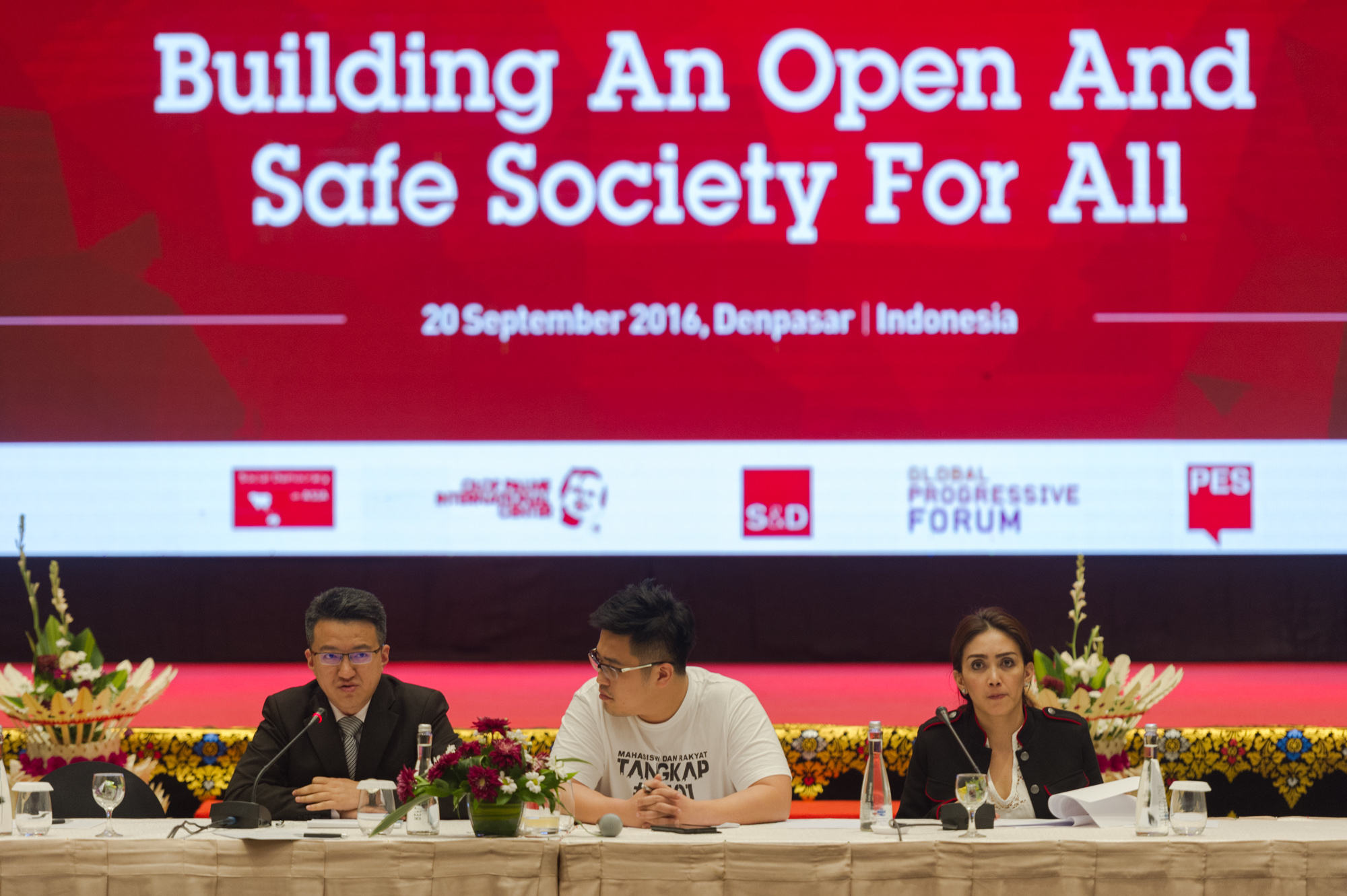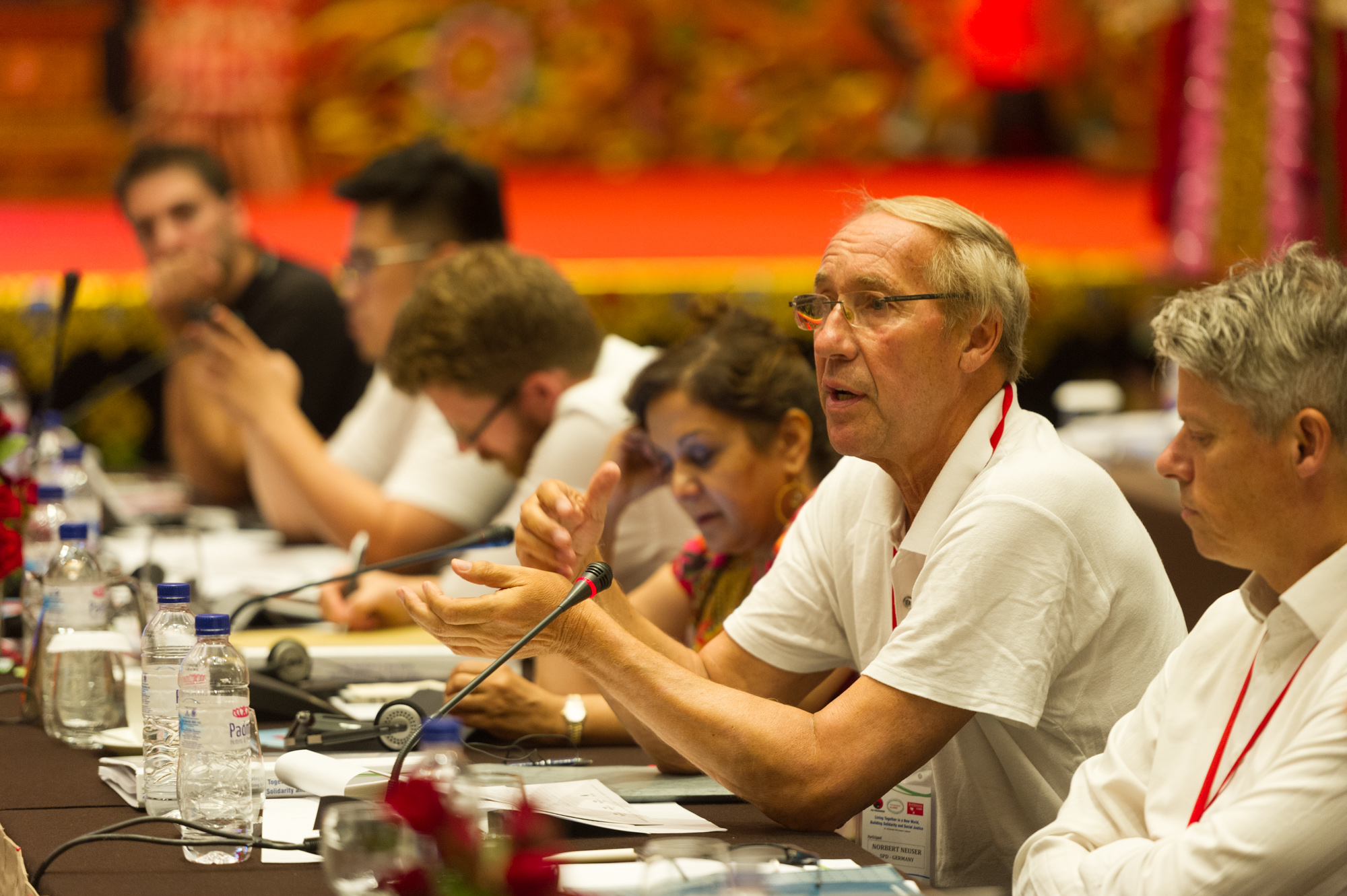Wednesday, 28 September 2016
 Countering Right-wing Populism
Countering Right-wing Populism
The right-wing populists that promote xenophobia, fundamentalism and violent radicalization seem to be on the rise and winning the debate in Europe, USA and South East Asia.
Political and economic marginalization aggravated by the financial crises in different continents since the 90’s have contributed to undermine established political leaders and stirred popular discontent. Many voters responded by electing maverick politicians who promised to target corruption, establish fresh agendas and radically solve all problems. In many cases, populist leaders based their appeal on the frustrations and aspirations of groups excluded from political power or afraid of the current socio-economic challenges.
There are several reasons why they seem to be winning: they are well organised and they seem to care what people think. But the latter does not necessarily relate to facts, on the contrary it rather relates to perceptions and emotions. There is a need to consolidate the consensus in our societies around tolerance, fundamental rights and pluralism. As our societies become more diverse and immigration reaches more communities, more people ought to become less prejudiced and more supportive.
We need to rebuild public support by tackling issues that lie at the root of public anger. Inequality and social injustice are fuelling the frustration of traditional left-wing voters, especially when they see elites benefiting from privileges, tax evasion and misuse of public funds. By strengthening tools to combat corruption and tax evasion and by establishing remedies against discrimination and exclusion, progressives can show that institutions serve more than the interests of economic elites. By speaking truth to power that be, reaching out to our traditional base of support from the ordinary people, and continuing to pose concrete but strategic solutions, progressives can remain alternatives to short-term, divisive and often hollow populist calls.

Preventing violent radicalisation, extremism and terrorism
Terrorism is a global threat and it requires a global reaction.
Paris, Brussels, Dakka, Lahore, Orlando, Istanbul, Nice, Syria, Tunisia, Nigeria, Mumbai, Jakarta, Davao, etc. All continents face the same challenge to their democratic society and to the safety of their citizens.
The past five years have seen a lot more home-grown "gangster jihadis” in South East Asia and in Europe. In many cases, poverty, marginalization and search for identity are causes driving the youth into terrorism. While individual responsibilities cannot be underestimated, our civil society and political forces must reflect and address the causes that have let these young people to drop out from our society and be fascinated by a heinous and violent ideology.
The inability or reluctance of political leaders to take decisive action against those that use religion to perpetuate and justify hate speech and violence has created conditions for virulent ideologies like Daesh to find appeal.
Extremist and intolerant voices have been allowed to operate with impunity in several Middle-Eastern countries hitherto celebrated as bastions of "moderation."
The transnational nature of the Daesh threat by definition calls for transnational responses. While security agencies in the Philippines, Indonesia, Malaysia, and Singapore are already engaged in regular information sharing, it is clear from the persistence of this problem that this is not enough.
The fight against terrorism must be closely linked to fighting organised crime and arms trafficking. An important element in common between Paris and Brussels attackers is that they both have a criminal history. Terrorists are violent and criminal groups are hiding behind hijacked ideologies; faith is used to justify their atrocious actions and purposes. Criminal networks are far more important to Daesh as they include individuals with the necessary connections to the arms traffickers. It is of vital importance that the security services cross-reference the lists of radicalised individuals with data on violent criminals.
Prisons remain one of several environments which are a breeding ground for the spread of radical and violent ideologies and of terrorist radicalisation. It is important to recruit religious, philosophical and secular representatives so that they can not only adequately meet prisoners’ cultural and spiritual needs in prisons, but also contribute to countering potential extremist discourse and cooperate with families, NGOs and local communities for the implementation of de-radicalisation and re-integration programmes.
We call on all religious leaders and communities to strongly condemn terrorism as a violation of their religious values, join public authorities in defending our common civil values, and contribute to their promotion especially among young generations.
We also call on competent authorities to ensure that websites that incite hatred are monitored more strictly while always respecting people’s fundamental freedoms.
Islamophobia is a dangerous and unacceptable common ground for xenophobic populists and Islamic terrorists. Islamophobia contributes to the exclusion of Muslims from society, which could create fertile ground for vulnerable individuals to join violent extremist organisations. Notably in Europe, Islamophobia is in turn manipulated by organisations such as Da’esh for propaganda and recruitment purposes.
The strength of Daesh propaganda lies in its simplicity. The argument revolves around ideas of social deprivation, racism, identity and acceptance. Daesh offers an alternative identity and this approach finds a ready audience in marginalized youth in neglected communities.
We reaffirm that at the heart of democracy is the protection of minorities, rather than simply the rule of the majority, and the upholding of fundamental liberties and social rights for all. We assert that societies are strengthened by openness and diversity. While unjust and intolerant conditions will keep us unsafe and vulnerable.